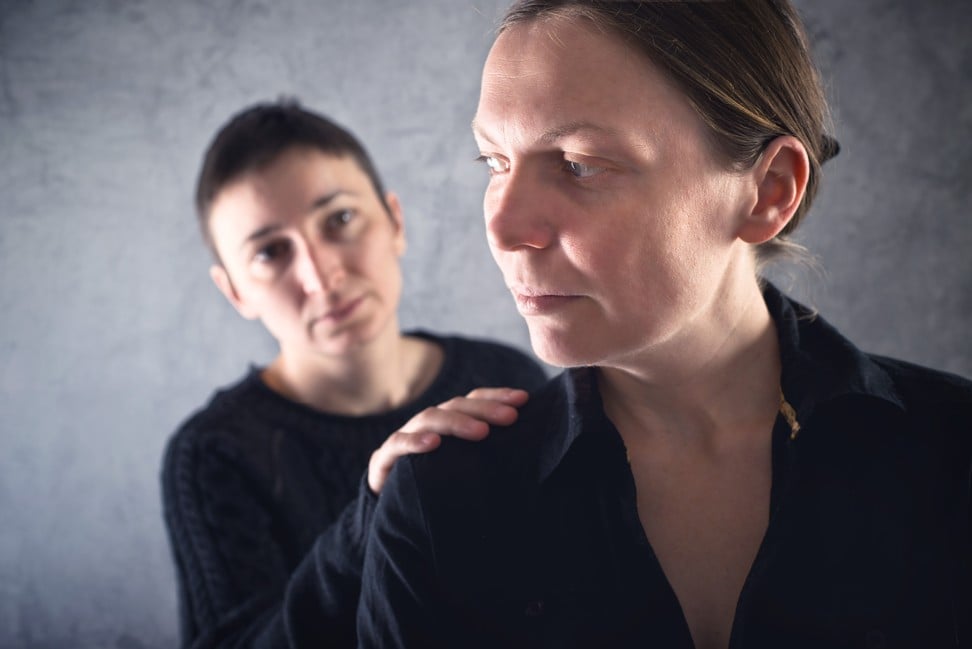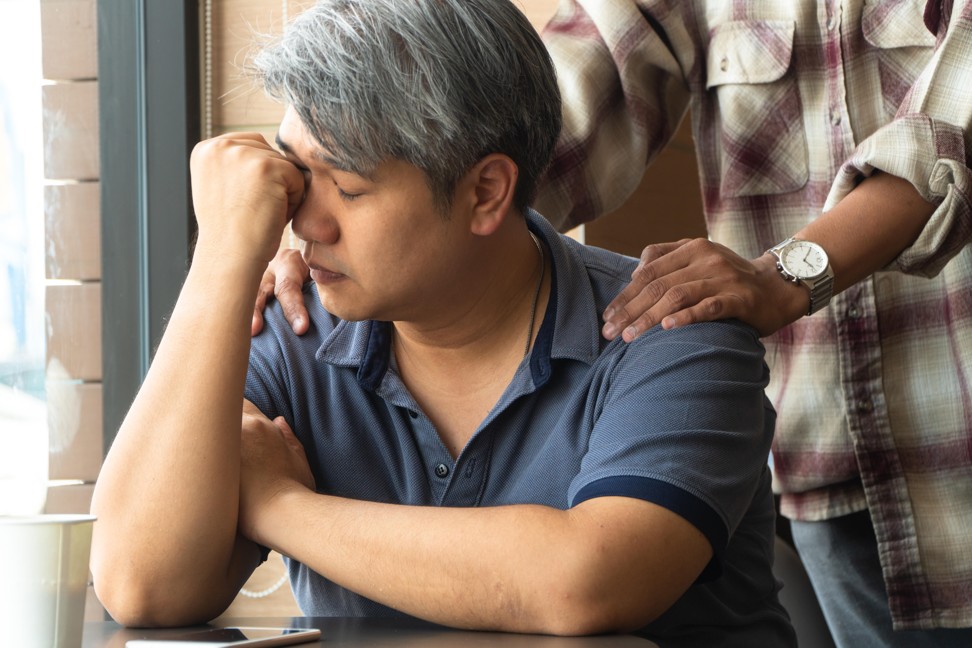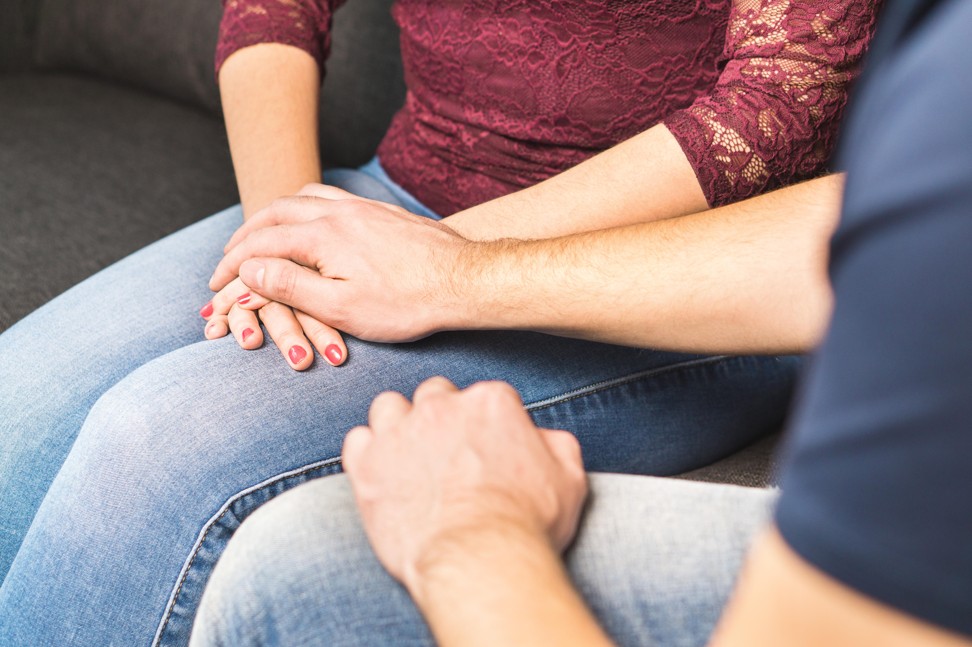
How to help people suffering from depression: tips for friends and family to support loved ones
- Most of us know at least one person who’s struggling with their mental health. Reaching out to them can make a lot more difference than you think
- Here are some useful tips on the best ways to show comfort and understanding
When Singaporean Chris Tan suffered from an acute stroke at the age of 33, his life took a turn for the worse. He lost the use of his left hand – his dominant hand – and had to relearn even the simplest tasks, like feeding himself and buttoning his shirt.
When the emotional struggle became too much to bear, Tan sought professional help and was diagnosed with clinical depression. He had cognitive behavioural therapy with a psychotherapist, but any improvement in his mental health was short-lived.
His depression worsened after he lost both his job and his marriage. His general practitioner, sensing that his life was in danger, referred him to the Institute of Mental Health in Singapore for outpatient treatment. There, Tan got the help he needed, which included medication for his depression.

Now 47 years old, Tan says that he is in a better place emotionally. “The medication has helped keep my mood in check and I’ve learned to cope with challenges as they come. I will have to keep taking my medication until I know for sure that I can manage without it.”
His sister let him know that she was always available for him, reminding him that she was just a phone call away if he needed someone to talk to.

Another sister also paid for him to undergo alternative forms of treatment, such as hypnotherapy sessions, because she knew he could not afford them on his own.
“Their support really helped me through those difficult days,” says Tan. “If you know someone who suffers from depression, you should never underestimate the power of a kind word or gesture.
“My friend and sisters’ kindness and concern went a long way towards helping me get better. It feels good knowing that you’re loved and cared for.”
When someone you know or love has depression, sometimes the last thing you want to do is reach out to them or be around them.

This is especially so if you are a carer or close to them. You may disapprove of their wanting to be alone, find it frustrating trying to communicate with them, or dislike how their mood and behaviour are affecting you emotionally. But it’s important to show your support and let them know that you’re on their side and that you love them unconditionally.
We know that social isolation and a lack of social support are associated with depression. The opposite is true, too, with research showing that when sufferers of depression receive support from others, they usually experience an improvement in their condition.
An Australian study, published in December 2017 in the journal Social Psychiatry and Psychiatric Epidemiology, found that people with depression who had high-quality social connections had a reduced likelihood of experiencing depression in the year before the survey.

Another study, published in October 2014 in the Journal of Research in Medical Sciences, revealed that social support, particularly family support, had a protective factor for depression as well as anxiety.
“Loved ones play a crucial role when it comes to supporting someone with depression, but just being there may not always be helpful,” says Sam Roberts, a clinical counsellor at Olive Branch Counselling and Therapy Haven in Singapore.
“You can show care by being open-minded and non-judgmental and asking them questions such as, ‘Are you OK?’, ‘Would you like to talk?’, ‘Can I keep you company today?’ and ‘Can I help you in some way?’
“But they may be emotionally overwhelmed at this time and feeling that no one understands them or that they are unloved or not good enough, so keep in mind that you may not get a response immediately. In this case, show compassion and empathy, be patient, and give them space and time.”

Roberts adds that if your loved one does respond by opening up about how they feel, you can acknowledge it with statements like, “I’m sorry you’re hurting, but please remember that I’m here for you,” and “Thank you for sharing that with me – now I have a better understanding of what you’re going through.”
Tan agrees, saying that those suffering from depression need space to process what they’re dealing with.
“But at the same time, check on us every now and again to make sure we’re physically safe,” he explains. “It’s also good to keep reaching out with supportive texts or emails, to remind us that you care, but don’t be overbearing. And when we choose to open up to you, listen to us without judgment.”
If they could ‘snap out of it’ or ‘move on with life’, trust me, they would
Tan says that, while your intentions may be good, such phrases aren’t helpful and can, in fact, make a depressed person feel worse.
Similarly, statements like “You think you have it bad”, “You don’t think of anyone but yourself” and “It’s all in your head” do nothing but minimise what a depressed person is feeling.
“If they could ‘snap out of it’ or ‘move on with life’, trust me, they would,” Tan explains. “Nobody who is depressed chooses to feel that way, so don’t make them feel like they’ve chosen this for themselves or that what they’re experiencing is their fault.”

If you think your loved one needs professional help then it’s fine to voice your concern, but be gentle and empathetic in your approach.
“Some common symptoms to look out for include erratic behaviour, irritability and moodiness, wanting to isolate themselves, issues with appetite or sleep, and an inability to perform normal tasks,” says Roberts.
“Remember, depression is a serious medical condition that requires treatment, whether medication or therapy, or both, so it’s important to refer your loved one to someone who will be able to help them.”

